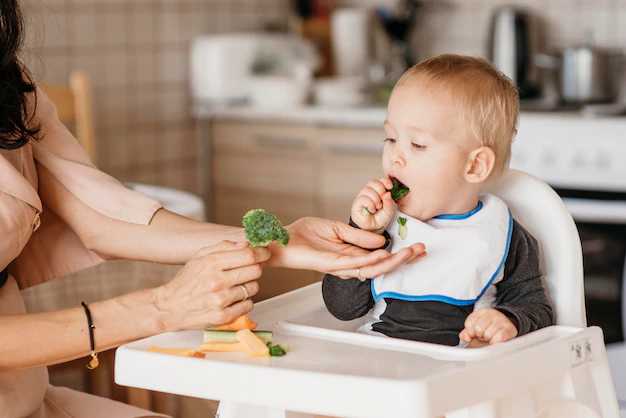If you are planning to gradually and slowly start weaning off breastmilk, then you should know about foods you can start feeding your child. If, as a mother, you want to know what food you can start, you are at the right place. However, before going into the article, let us know what weaning is.
What is weaning?
Weaning is how newborns transition from breast milk to other sources of nutrition. Weaning your baby is a process that requires both you and your child to be patient and understanding. The American Academy of Pediatrics (AAP) recommends exclusively giving breast milk to babies for the first six months of life. After that, until a baby is at least one year old, the AAP recommends a combination of solid meals and breast milk. Then, if they’re ready, newborns can start consuming entire cow’s milk. Unfortunately, some children wean themselves earlier than their mothers planned, while others refuse to wean when they are ready.
In this entire weaning process, a mother should know with what solid food she can start weaning off. Here is a list of food with their benefits –
- Cooked vegetables – You should only provide your infant with soft, mushy, easily eatable, and swallowable food. You can provide cooked and mashed broccoli, carrot, potato, Pumpkin, peas; you can even provide puree of vegetables. Vegetables contain a great amount of fiber, easy to digest, and have tons of vitamins and nutrients included in them.
- Fruits – Like vegetables, you can also start providing your child with soft and mashed fruits such as Banana, Apple, Plums, Peaches, etc. You can even provide puree of all these fruits. Fruits include vital minerals and vitamins that improve immunity, such as vitamin C and E.
- Cereals – You can provide your infant with cooked, mashed, or pureed cereals such as Oats, rice, lentils, quinoa, millet, etc. Cereals are usually easy to digest and iron-fortified, which is something that most babies require. It’s also regarded as a low-allergen food.
- Water – You can start offering a few sips of water to your child in the cup. Water Transmits nourishment and oxygen to cells while also assisting in waste removal. It also helps in maintaining blood volume.
Once your baby is more comfortable, you can build up more solid foods.
- Poultry items – If you eat nonveg, then you should also start feeding your baby with meat, eggs, and other poultry items; you just have to keep in mind that there are no bones. Poultry food items are loaded with proteins that build your baby’s body healthier.
- Dairy products – Feed your child full-fat dairy products such as yogurt or cheese.
- Nuts and seeds – Provide them with powdered nuts and seeds. Do not provide them with whole nuts and seeds because they will not be able to swallow them as a whole. Before providing nuts and seeds, see if they have any allergies. Then, you can provide them in the form of butter or paste.
- Gluten food – Provide your infant with food items that have gluten in them, like barley, wheat, rye, etc., again in an easily gullible form.
- Soya can be a great food item to serve as well.
- Other food items such as fish, beans, tofu, pulses, etc., can be served to your kid.
In all of this procedure, you have to keep in mind that your kid gets a variety of food to experiment with so that they can develop their taste and you can know what they like or dislike. After 7 to 8 months, your infant can have three small meals a day.
![]()











